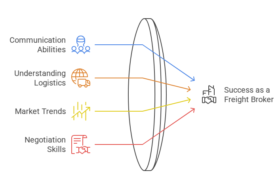The number of brokers registered with FMCSA may be dropping — coming on the heels of the enforcement date of the increase in the minimum surety bond required for brokers to carry — but some of the numbers being tossed out don’t represent what’s actually happening, said Chris Burroughs, who’s with the government affairs staff of the Transportation Intermediaries Association, a broker trade group.
Rather than a non-compliance issue, Burroughs said, the number of brokers losing their authority (more than 7,500 by noon Dec. 10) is also dropping because the Federal Motor Carrier Safety Administration database was out of date, he said. “We feel like there were a lot of people out there who had active authority but weren’t actively doing business and hadn’t been for some time,” he said. “The database had a lot of scrubbing to do.”
TIA, along with the American Trucking Associations and the Owner-Operator Independent Drivers Association, supported the increase, which was included in the MAP-21 highway funding act passed last year.
The increase to $75,000, Burroughs said, was something TIA, OOIDA and ATA sat down to work out, finding a compromise that worked for all three groups.
Even though the broker numbers are falling, he said, TIA “absolutely still support(s)” the increase, and the impact to the brokerage industry and the trucking industry will be “minimal, if nothing at all.”
Another broker trade group, the Association of Independent Property Brokers & Agents, is fighting the increase in court, and its president, James Lamb, has said up to 75 percent of current brokers could be forced out of the business by the bond increase. The increase will have a particularly harsh impact on small brokers, Lamb said.
Burroughs said 70 percent of TIA’s membership is made up of brokers with less than $2 million in annual revenue, and the effect on TIA’s membership has been minimal, he said.







